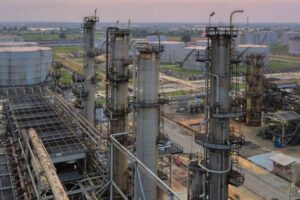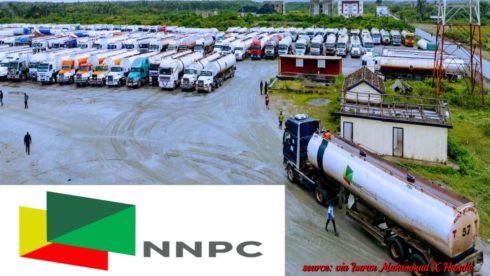The Nigerian National Petroleum Company Limited (NNPCL) has taken a bold step by slashing the price of Premium Motor Spirit (PMS) to below ₦1,000 per litre, signaling a major shift in the nation’s energy landscape. This announcement, shared through a statement by the National Public Relations Officer of the Petroleum Products Retail Outlets Owners Association of Nigeria (PETROAN), Dr. Joseph Obele, marks a pivotal moment for the downstream oil sector. The new pricing strategy lowers the ex-depot price of PMS from ₦1,020 to ₦899 per litre, offering potential relief to consumers struggling with high fuel costs.
This price adjustment is expected to have a profound impact across the downstream sector, fostering increased competition among oil marketers. By introducing more competitive pricing, NNPCL aims to drive a ripple effect that could stabilize market dynamics and reduce costs for consumers. As this development unfolds, industry stakeholders are optimistic about its potential to alleviate economic pressures and promote affordability in the energy market.
Deregulation Sparks Competition in the Oil Market
According to PETROAN, the price cut reflects the competitive dynamics introduced by deregulation in the downstream oil sector. Deregulation has allowed for increased market competition, pushing oil marketers to offer competitive pricing to retain market share. This move by NNPCL demonstrates the company’s commitment to remaining a key player in the evolving energy landscape.
The reduced fuel prices signal the emergence of a more consumer-focused oil market. Analysts predict that this will drive a “price war” among marketers, creating a win-win scenario for both consumers and businesses in the long term.
PETROAN Commends NNPCL’s Bold Initiative
The Petroleum Products Retail Outlets Owners Association of Nigeria has praised NNPCL for addressing public calls for more affordable fuel prices. In its statement, PETROAN described the decision as timely and necessary to alleviate the economic pressure faced by Nigerians. Dr. Joseph Obele emphasized that the move aligns with the association’s advocacy for better consumer pricing in the energy sector.
PETROAN also acknowledged the potential benefits of this price reduction in fostering economic stability. By lowering PMS costs, NNPCL is not only setting the pace for other marketers but also indirectly reducing transportation and production costs across various industries.
Impact on Consumers and the Economy
For many Nigerians, the reduction in PMS prices comes as a much-needed relief amid rising living costs. Lower fuel prices are expected to trickle down to other sectors, including transportation, manufacturing, and agriculture, potentially reducing the overall cost of goods and services.
Economists have lauded the move as a step toward creating a more stable economic environment. By fostering competition and lowering operational costs for businesses, the price cut has the potential to spur economic growth and improve the standard of living for millions of Nigerians.
Challenges Ahead for Oil Marketers
While the price reduction is a positive development for consumers, it poses significant challenges for smaller oil marketers. Many may struggle to match NNPCL’s aggressive pricing, potentially leading to market consolidation as weaker players exit the sector.
Industry experts suggest that the government and regulatory bodies must monitor the situation closely to prevent anti-competitive practices. Ensuring a level playing field will be crucial to maintaining a healthy and diverse downstream sector.
A New Era in Nigeria’s Oil Sector
The recent price cut by NNPCL signals a transformative period in Nigeria’s oil and gas industry. As competition intensifies, consumers are likely to benefit from improved services and lower costs. This development underscores the potential of deregulation to drive innovation and efficiency in the sector.
Moving forward, stakeholders are optimistic that NNPCL’s bold decision will set a precedent for a more dynamic and consumer-friendly energy market. By prioritizing affordability and accessibility, the company is paving the way for a more sustainable future in Nigeria’s oil sector.
Table of Contents
Discover more from OGM News NG
Subscribe to get the latest posts sent to your email.














